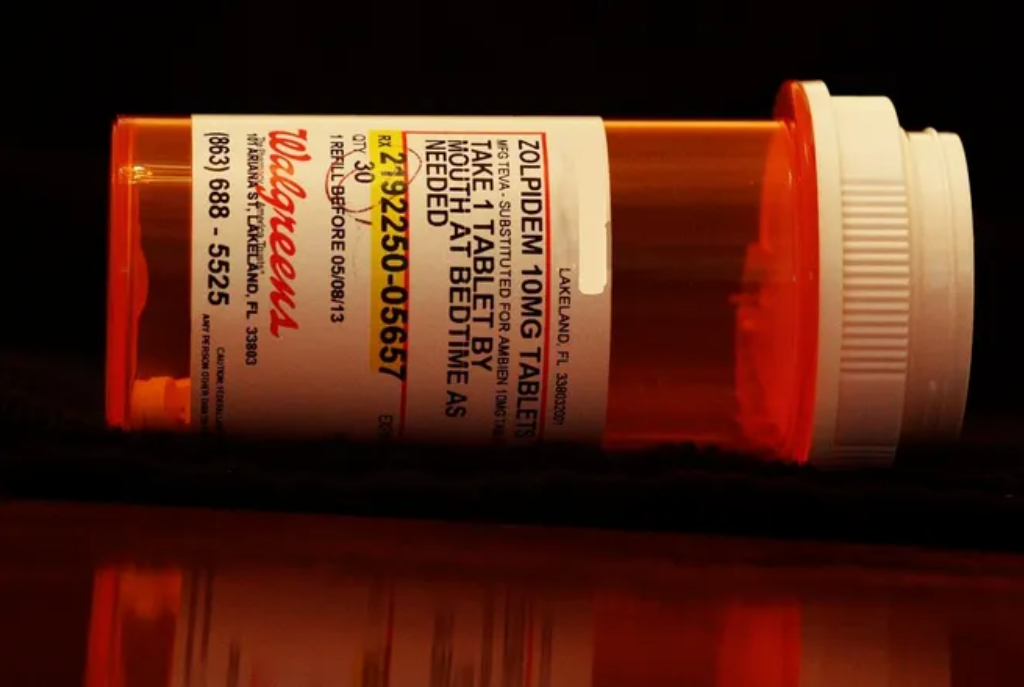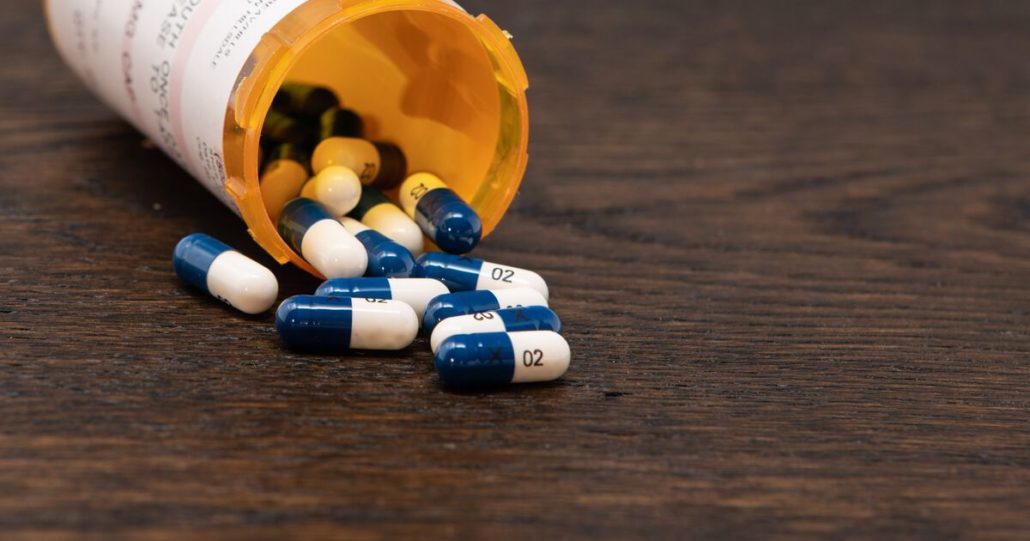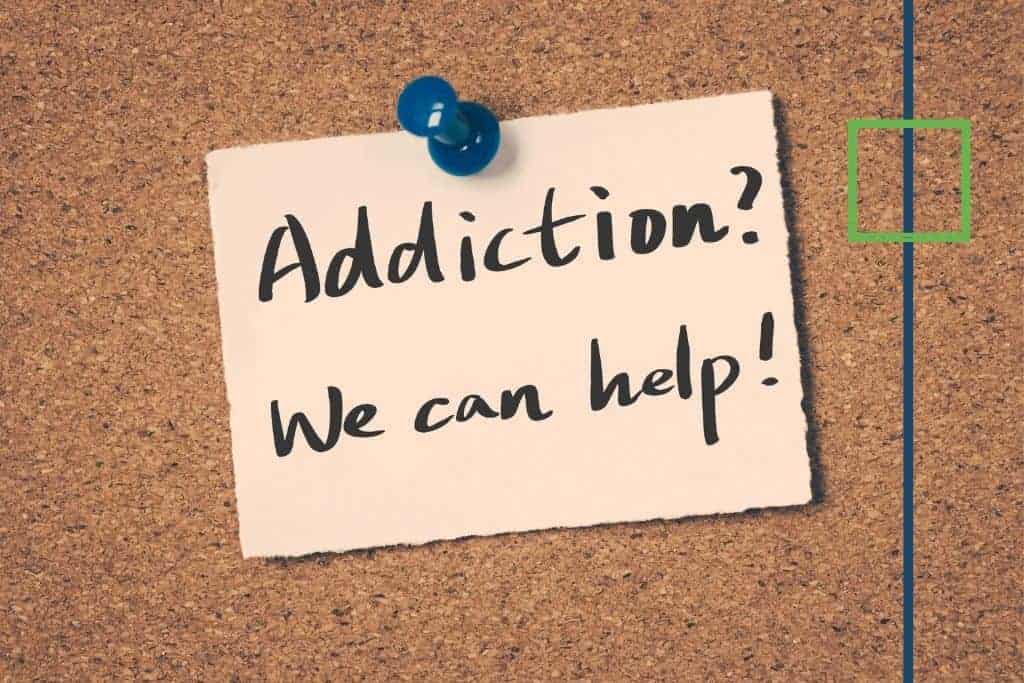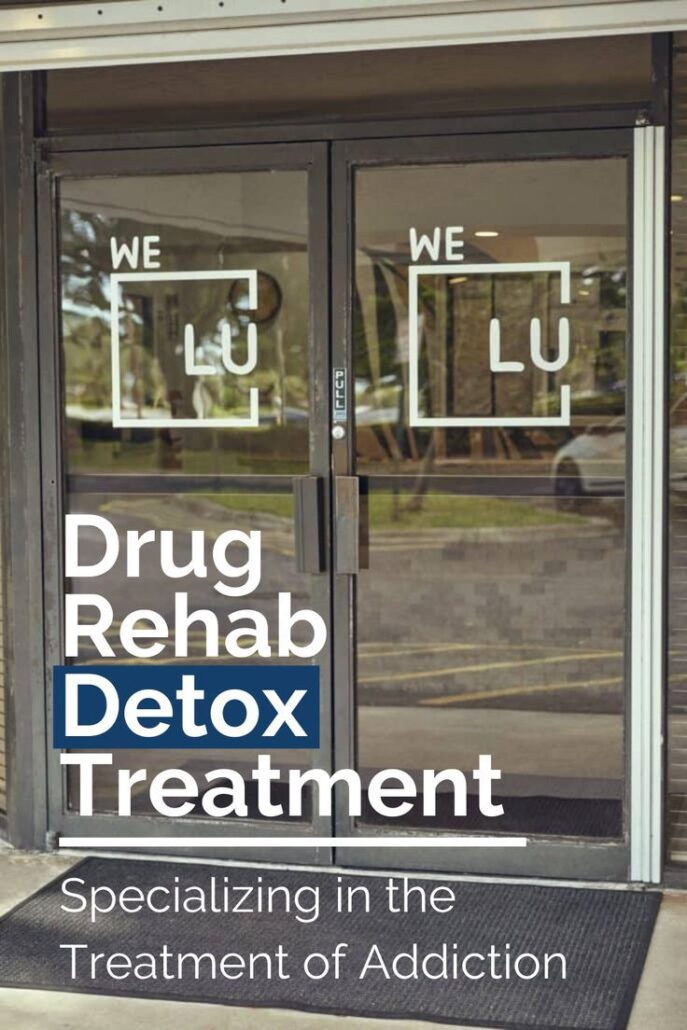Is Amitriptyline Addictive?
Amitriptyline is a drug frequently used to treat both depression and persistent pain. There are concerns regarding its addictive potential and adverse effects, even though it relieves many. The hazards, typical side effects, and available treatments for Amitriptyline addiction will be discussed. Knowledge of Amitriptyline’s subtleties is crucial for making educated judgments about its use, whether you’re a healthcare provider, a patient, or inquisitive.
Struggling with Substance Abuse? Join numerous individuals who have found support in We Level Up for drug addiction treatment. Contact us 24/7 for confidential assistance. Our addiction professionals are here to guide you on your recovery journey.
What is Amitriptyline?
Amitriptyline, a tricyclic antidepressant, is generally not considered addictive in the same way that substances like opioids or stimulants are. It doesn’t produce the same euphoric or reinforcing effects that lead to addiction.
Some individuals may develop a psychological dependence on Amitriptyline, especially if they believe it significantly improves their mood or relieves pain. Suddenly, discontinuing the medication without medical guidance can lead to withdrawal symptoms and a resurgence of the symptoms it was initially prescribed to treat.
Amitriptyline Addiction and Abuse Side Effects
Unlike other drugs or chemicals, such as opioids or stimulants, amitriptyline is not commonly connected with addiction or abuse. However, being conscious of the potential for Amitriptyline-related unpleasant reactions and side effects is crucial. Some of these are:
- Common Side Effects:
- Drowsiness.
- Dry mouth.
- Constipation.
- Blurred vision.
- Dizziness.
- Weight gain.
- Less Common Side Effects:
- Heart palpitations.
- Confusion.
- Hallucinations.
- Difficulty urinating.
- Increased sensitivity to sunlight.
- Skin rash.
- Serious Side Effects (Rare):
- Allergic reactions (e.g., rash, itching, swelling).
- Chest pain or palpitations.
- Shortness of breath.
- Unusual bleeding or bruising.
- Severe dizziness or fainting.
- Changes in sexual desire or ability.
Uncover addiction counseling that works. Discover professional help from We Level Up’s addiction and mental health therapists. Start getting support with a free call to our addiction hotline.

Skip To:
Learn More:
- Is Ambien a Narcotic? Ambien Risks and Addiction Potential. Ambien Narcotics. Why is Ambien a Narcotic?
- Is Gabapentin a Narcotic or a Controlled Substance? Gabapentin Narcotic Class. Gabapentin Narcotics.
- Is Tramadol a Narcotic? Is Tramadol a Narcotics Class? Is Tramadol a Narcotic or Not? Is Tramadol an Opioid? Signs of Tramadol Opioid Use Disorder & Narcotic Drug Treatment Center NJ
- Is Heroin a Narcotic?
- Narcotics Anonymous Support Groups
Get Help. Get Better. Get Your Life Back.
Searching for Accredited Drug & Alcohol Rehab Centers Near You? Or Mental Health Support?
Even if you have failed previously, relapsed, or are in a difficult crisis, we stand ready to support you. Our trusted behavioral health specialists will not give up on you. Call us when you feel ready or want someone to speak to about therapy alternatives to change your life. Even if we cannot assist you, we will lead you wherever you can get support. There is no obligation. Call our hotline today.
FREE Addiction Hotline – Call 24/7Amitriptyline Addiction Facts
Overview
Amitriptyline is a tricyclic antidepressant medication commonly prescribed to treat depression, various chronic pain conditions, and certain mood disorders. It belongs to a class of drugs that work by affecting the balance of certain natural substances (neurotransmitters) in the brain.
Common Uses:
- Depression.
- Neuropathic pain.
- Migraine prevention.
- Fibromyalgia.
- Insomnia
How It Works:
Amitriptyline primarily works by increasing the levels of serotonin and norepinephrine in the brain, helping to improve mood and alleviate pain.
Potential Side Effects
Common side effects may include drowsiness, dry mouth, constipation, blurred vision, dizziness, and weight gain. Less common or severe side effects can occur and should be discussed with a healthcare provider.
Amitriptyline Addiction Potential
Amitriptyline is generally not considered addictive in the traditional sense, as it does not produce euphoric effects or cravings that lead to addiction. However, individuals may develop psychological dependence if they believe it improves their mood or relieves pain. It’s essential to use Amitriptyline as prescribed and under medical supervision.
Important Notes:
- Never discontinue Amitriptyline abruptly; doing so can lead to withdrawal symptoms.
- Follow your healthcare provider’s instructions for dosage and usage.
- Inform your healthcare provider of any other medications to avoid potential interactions.
- Discuss any concerns about side effects or medication use with your healthcare provider.
Amitriptyline Statistics
Amitriptyline, one of the earliest antidepressants introduced following imipramine, finds application in various psychiatric and organic conditions. Its mode of action involves augmenting monoamine availability within the central nervous system’s postsynaptic clefts. While suspicions of amitriptyline’s potential for abuse have lingered based on isolated case reports, case studies provide tangible evidence to support such concerns.
25 mg daily
The suggested beginning dosage for the treatment of depression.
Source: FDA
12 Years Old
Due to a lack of data, this medication is not advised for children under 12.
Source: FDA
100 -200 mg a day
Hospitalized patients may necessitate an initial daily dosage of 100 mg, which can be progressively escalated to 200 mg daily if necessary.
Source: FDA

Get Your Life Back
Find Hope & Recovery. Get Safe Comfortable Detox, Addiction Rehab & Mental Health Dual Diagnosis High-Quality Care at the We Level Up Treatment Centers Network.
Hotline (877) 378-4154Conquering Amitriptyline Abuse: Discover the Support You Seek
Withdrawing from Amitriptyline can be an arduous journey to navigate alone. Numerous individuals face relapses during withdrawal as they try to ease symptoms and cravings. Yet, you can effectively manage withdrawal symptoms and achieve recovery through detox, rehab therapy, and a strong support network at We Level Up treatment centers. Contact a We Level Up treatment expert today if you need help on your rehab path. Your call is both free and confidential.

Amitriptyline High
Amitriptyline is a tricyclic antidepressant primarily prescribed to treat depression, chronic pain, and mood disorders. It is not intended to be used recreationally or to produce a “high.” Using Amitriptyline in ways other than prescribed by a healthcare professional can be extremely dangerous and may lead to severe side effects and health risks, including overdose.
Attempting to misuse Amitriptyline by taking higher doses than prescribed or using it for recreational purposes is unsafe and illegal. It can result in a range of adverse effects, including:
- Severe Sedation: Amitriptyline can cause significant drowsiness even at therapeutic doses. Taking high doses can lead to extreme sedation, impaired coordination, and a loss of consciousness.
- Cardiac Effects: High doses of Amitriptyline can affect the heart’s electrical activity, potentially leading to life-threatening cardiac arrhythmias.
- Seizures: In some cases, overdose or misuse of Amitriptyline may trigger seizures.
- Anticholinergic Effects: Overdose can intensify anticholinergic side effects like dry mouth, blurred vision, constipation, and urinary retention.
- Delirium: High doses can lead to delirium, confusion, and altered perception.
- Coma and Death: In severe cases, Amitriptyline overdose can result in a coma or be fatal.
First-class Facilities & Amenities
World-class High-Quality Addiction & Mental Health Rehabilitation Treatment
Rehab Centers TourRenowned Addiction Centers. Serene Private Facilities. Inpatient rehab programs vary.
Addiction Helpline (877) 378-4154Proven recovery success experience, backed by a Team w/ History of:
15+
Years of Unified Experience
100s
5-Star Reviews Across Our Centers
10K
Recovery Success Stories Across Our Network
- Low Patient to Therapist Ratio
- Onsite Medical Detox Center
- Comprehensive Dual-Diagnosis Treatment
- Complimentary Family & Alumni Programs
- Coaching, Recovery & Personal Development Events
Amitriptyline Addiction Withdrawal Symptoms
Amitriptyline is a pharmaceutical agent employed in treating depressive disorders, anxiety disorders, and a range of pain syndromes. Although Amitriptyline is not commonly linked to addiction like certain other narcotics, persons who engage in long-term usage of this prescription may have withdrawal symptoms if they suddenly discontinue its use or dramatically decrease their dosage.
Amitriptyline Withdrawal Symptoms:
- Nausea and Vomiting: Some people may experience digestive symptoms like nausea and vomiting when discontinuing Amitriptyline.
- Insomnia: Difficulty sleeping or worsening of pre-existing sleep disturbances can occur during withdrawal.
- Irritability: Mood changes, including irritability and anxiety, are common during withdrawal.
- Headaches: Headaches and increased sensitivity to light may be experienced.
- Flu-Like Symptoms: Some individuals may have flu-like symptoms, such as muscle aches and chills.
- Dizziness: A sense of dizziness or vertigo is possible during withdrawal.

World-class, Accredited, 5-Star Reviewed, Effective Addiction & Mental Health Programs. Complete Behavioral Health Inpatient Rehab, Detox plus Co-occuring Disorders Therapy.
CALL (877) 378-4154End the Addiction Pain. End the Emotional Rollercoaster. Get Your Life Back. Start Drug, Alcohol & Dual Diagnosis Mental Health Treatment Now. Get Free No-obligation Guidance by Substance Abuse Specialists Who Understand Addiction & Mental Health Recovery & Know How to Help.

Amitriptyline Addiction Treatment
Ambien addiction can be a complex and challenging journey, and we’re here to provide comprehensive support.
Our Services Include:
- Dual Diagnosis Treatment: Addressing co-occurring mental health issues alongside addiction, our integrated care approach promotes lasting recovery.
- Medical Detox: Ensuring a safe and comfortable Ambien withdrawal under expert supervision.
- Individualized Therapy: Exploring addiction’s root causes and developing personalized recovery strategies through one-on-one counseling.
- Group Therapy: Building community and sharing experiences in supportive group sessions.
- Holistic Approaches: Incorporating yoga, meditation, and art therapy to address physical, emotional, and spiritual aspects of recovery.
- Relapse Prevention: Equipping individuals with tools to identify triggers and maintain sobriety.
Our commitment at We Level Up is helping individuals overcome Ambien addiction for lasting recovery. Our evidence-based treatments, compassionate staff, and personalized care plans support each person’s unique journey to sobriety. If you or someone you know is struggling with Ambien addiction, reach out today. We provide guidance and support, promoting mental health and well-being.
We Level Up Treatment Center is committed to guiding you toward lasting recovery from Ambien Addiction and co-occurring conditions. Our multidisciplinary team is here to provide unwavering support, guidance, and personalized care every step of the way. Let’s embark on this transformative journey together.
Experience Transformative Recovery at the We Level Up Treatment Center.
See our authentic success stories. Get inspired. Get the help you deserve.



Start a New Life
Begin with a free call to an addiction & behavioral health treatment advisor. Learn more about our dual-diagnosis programs. The We Level Up treatment center network delivers various recovery programs at each treatment facility. Call to learn more.
- Personalized Care
- Caring Accountable Staff
- World-class Amenities
- Licensed & Accredited
- Renowned w/ 5-Star Reviews
We’ll Call You
Most Popular Is Amitriptyline Addictive FAQ
-
Amitriptyline is it addictive? Can you become addicted to Amitriptyline?
Amitriptyline is recommended for depression and pain but can be abused and addictive. Its mood-altering qualities can help some, but more significant doses or longer durations can lead to abuse. Misuse of Amitriptyline for mood-altering effects can lead to psychological dependence.
Powerful Video Overcoming Prescription Drug Abuse
“I wanted my life back. I was a shell of a person. I wanted to be trusted; I wanted relationships back that I lost, mainly my children and family. It started innocent enough, I got into a car accident, and then I got sucked into the whole, you know, medication issue with the pills. Before I knew it, I was in a cloud. I was sucked in by addiction, and with my mind, I kept thinking it was OK because a doctor was prescribing this for me, a doctor was giving me this, a doctor was giving me that.
So, I didn’t think I was doing anything wrong. Level Up supports my family and my relationships with my family, and they’ve helped me grow as a person. When I first started there, I was so intimidated and scared, you know? But, they’ve taught me, they’ve taught me how to come into my own. And then, you know, when I get the call from my twenty-one-year-old daughter in the middle of the day, to say ‘I love you, Mom.’ that’s amazing.”
Jen’s Addiction Recovery Testimonial
Search Is Amitriptyline Addictive? Abuse, Side Effects, & Treatment / Detox & Mental Health Topics & Resources
Sources
- Medicine Net. (2019). Amitriptyline (Elavil, Endep). Retrieved on 6th August 2019 from https://www.medicinenet.com/amitriptyline/article.htm#what_is_amitriptyline_and_how_does_it_work_mechanism_of_action Learn More: Amitriptyline addictive effects, Amitriptyline is addictive, are amitriptyline addictive
- Web MD. (2019). Elavil Tablet. Retrieved on 5th August 2019 from https://www.webmd.com/drugs/2/drug-1807/elavil-oral/details Learn More; Is Amitriptyline addictive? can amitriptyline be addictive
- https://www.nhs.uk/medicines/amitriptyline-for-pain/ Learn More; Is Amitriptyline addictive?
- https://medlineplus.gov/druginfo/meds/a682388.html Learn More: Is Amitriptyline addictive?
- https://pubmed.ncbi.nlm.nih.gov/7284924/ Learn More; Is Amitriptyline addictive?
- https://www.drugabuse.gov/publications/principles-drug-addiction-treatment-research-based-guide-third-edition/frequently-asked-questions/how-long-does-drug-addiction-treatment-usually-last Learn More; Is Amitriptyline addictive? can you get addicted to amitriptyline